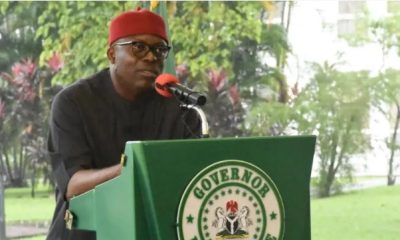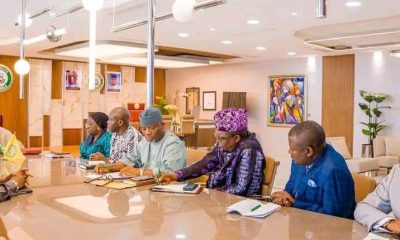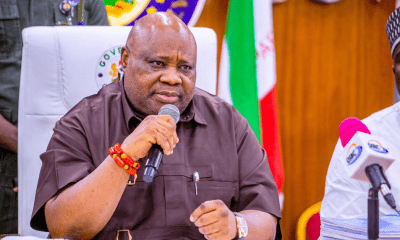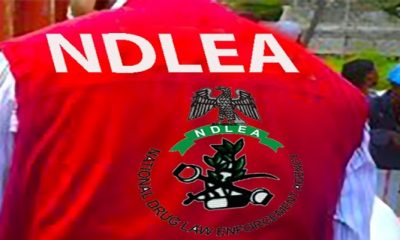Nigeria is currently at a digital war following the exposure of abortion-related content in a Junior Secondary School (JSS3) science textbook, which has caused intense debate over the country’s educational system, moral values, and how financial hardship is influencing reproductive decisions.
The controversy started with a viral post on X (formerly Twitter) after user Alex Onyia shared excerpts from the Classic Basic Science and Technology for Junior Secondary School Three textbook.
The material in question explains the procedures and reasons for abortion and shows a detailed explanation of surgical abortion methods, including Dilation and Curettage (D&C) and Dilation and Evacuation (D&E), which immediately went viral.
Page 135 of the book partly reads, “There are two types of surgical abortion. Dilation and curettage (D & C): The cervix is dilated (opened and expanded) and a special instrument is used to scrape or scoop some linings and other materials in the uterus. D&C, also called vacuum aspiration, is used when the pregnancy is under 15 weeks.
“Dilation Evacuation (D & E): This involves dilating the cervix and using narrow forceps to evacuate the embryo that has formed bones. It is more difficult and requires more techniques than a simple D & C. It is used for 15-24 weeks old pregnancy.”
In his post, Onyia, however, accused the Nigerian Educational Research and Development Council (NERDC) of exposing children to inappropriate and harmful content.
“This book is teaching JSS3 students in Nigerian schools how to do abortion with clear images. Parents, wake up and save your children. NERDC approved this!” he wrote. “Corruption is not just about stealing money, it destroys our coming generation!”
The post has now quickly gathered a nationwide debate, with netizens flooding social media platforms with opinions, both in support and opposition to the textbook content.
For some, the inclusion of such detailed abortion procedures in a textbook for teenagers was a shocking violation of moral and cultural values.
Critics like @Danosquare decried what they called the infiltration of Western ideologies into Nigeria’s education system.”This is real evil, many people in Nigeria are actually ignorant of these wickedness from the West. If you talk, they’ll tag it CONSPIRACY THEORIES. Thank you Alex for raising this alarm.”
Mary Ekemezie, tweeting under the handle @MaryEkemezie, expressed her concern that parents were not paying close enough attention to the content being taught to their children.
Ekemezie described the situation as “one of the fall out of copying blindly from the West and depending on donor funding, and staffing the NERDC and the Nigerian Education with men and women who cannot see how bad books and corrupt content destroy the heritage of our nation.”
She added that she cannot help but weep, stating that “while parents are laser-focused on food the real tragedy will be losing your child to abortion and your sons being sterile because they choose vasectomy, before they even understood what that really meant. Wake up, before it is too late.”
Meanwhile, on the other side of the argument, some individuals defended the educational approach taken by the textbook.
Twitter users like @asquarebubble argued that teaching about abortion in a structured, academic environment does not encourage students to perform abortions but instead educates them about real-world issues they may encounter.
The user tweeted, “The illegality of illicit abortion doesn’t mean it can’t be taught in schools. Students aren’t being shown how to do it or participate in it, but learning the concept.It’s like lessons on sex, drug abuse, or crime—you don’t want them learning it outside a structured environment.”
While @LightskinMania views the situation as “the particular form of idiocy on the internet that infuriates me the most. Peddling rubbish narratives that affect human lives greatly because of a science textbook. The scale of anti-intellectualism in this country is probably why we’re not making it.”
The textbook, published by Thursmay Publishers and authored by M. Abdussalam, F.A Ibekwe, D.E Akintelure, and B.B Akintelure, is widely used in Nigerian schools and bears the approval stamp of the NERDC.
NERDC, among others, is responsible for overseeing the development and approval of educational materials, ensuring they align with national standards.
While some critics who side with Onyia call for a thorough review of the educational materials currently in use, with the argument that some content may be out of touch with Nigerian values and realities, others, like @Nwaulari, say, “Whoever is in charge of NERDC should be sacked immediately.”
Others even stated that the Nigerian education curriculum is borrowed; @Sir_Kings08 added “Our curriculum and everything is borrowed, so our school texts will naturally negate or contradict our values and heritage. Proprietors pride in adding “American”, “British” or “Canadian” to names of schs. Plus, a little bribe and no one has to waste time proofreading textbooks.”
Nigeria’s Criminal Code And Penal Code
Among other nations, like the United States, Nigeria has a strict legal framework around abortion. Abortion laws in Nigeria are highly restrictive, differing slightly between the northern and southern parts of the country.
The Penal Code, which mostly applies to northern states, allows abortion only to save the life of the mother and carries severe penalties for anyone found guilty of performing or procuring an illegal abortion. The maximum penalty for causing a miscarriage is 14 years in prison, while performing an abortion without the woman’s consent can result in life imprisonment.
In Section 232 of the Penal Code reads, “Whoever voluntarily causes a woman with child to miscarry shall, if such miscarriage be not caused in good faith for the purpose of saving the life of the woman, be punished with imprisonment for a term which may extend to fourteen years or with fine or with both.”
Section 235 says, “Whoever before the birth of any child does any act with the intention of thereby preventing that child from being born alive or causing it to die after its birth and does by such act prevent that child from being born alive or causes it to die after its birth, shall, if such act be not caused in good faith for the purpose of saving the life of the mother, be punished with imprisonment for a term which may extend to fourteen years or with fine or with both.”
Section 236 also stated, “Whoever does any act in such circumstances that, if he thereby caused death he would be guilty of culpable homicide, and does by such act cause the death of a quick unborn child, shall be punished with imprisonment for life or for a less term and shall also be liable to fine.”
Meanwhile, in other Nigerian states, governed by the Criminal Code, similar penalties apply. A person attempting to procure a miscarriage could face up to 14 years in prison, and any woman attempting to abort her own pregnancy can face up to seven years. Supplying drugs or instruments for an illegal abortion is also punishable by up to three years in prison.
Despite these harsh legal penalties, unsafe abortions remain a serious issue in Nigeria, largely due to limited access to legal abortion services and inadequate family planning resources.
According to a study by Boniface A. Oye-Adeniran and co., as many as 53 million pregnancies are estimated to be terminated by induced abortion each year worldwide, while in Nigeria an estimated 610,000 abortions are performed annually.
While the National Library of Medicine, in a study conducted in 80% of politicians and policy-makers interviewed admitted that unsafe abortion is a major cause of maternal mortality but only 20% favoured the amendment of the existing law.
The intersection of abortion education and Nigeria’s economic crisis has intensified public discourse, with some arguing that the government’s inability to alleviate poverty is forcing people to consider desperate measures, including unsafe abortions.
Nigeria for years has been dealing with rising inflation, which has severely impacted living conditions and family planning decisions. In August 2024, the National Bureau of Statistics (NBS) reported that the national average cost of a healthy diet had surged to N1,255 per adult per day, with Lagos, Ogun, and Rivers States recording the highest costs. Inflation reached 32.15% in August 2024, and food inflation spiked to 37.52%.
These economic difficulties have led some Nigerians to reassess their family planning choices, and abortion, though largely illegal, has become part of the conversation.
A Lagos resident, simply identified as Morenike, stated that she hardly sees on the street of Lagos now that the current financial hardship is influencing reproductive decisions.
“With the current high cost of living, people can barely afford to feed themselves, let alone bring a child into the world,” Morenike said. “I hardly see pregnant women on the streets these days; it’s so rare. The economic strain is just too much.”
Meanwhile, another Eko resident, identified as Itunu, stated that abortion is not hygienic and could create a mass practice that will not only shorten the lives of ignorant young ladies but will only increase the moral standard between the youths.
Itunu shared, “On abortion, I won’t support its encouragement; there are other ways to prevent having unwanted babies, such as family planning for those who are married, and abstinence which should be encouraged even more.
“Abortion is not hygienic and could create a mass practice which will not only shorten the lives of ignorant young ladies but will only increase the moral standard between the youths.”
As of the time of filing this report, neither the NERDC nor the Ministry of Education had responded to the situation.

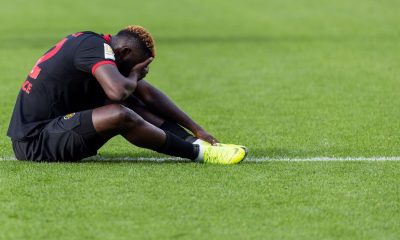
 Football19 hours ago
Football19 hours ago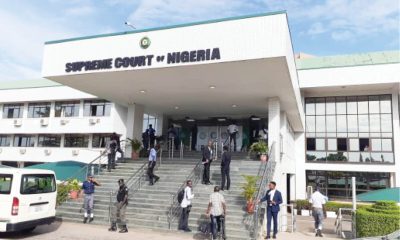
 News22 hours ago
News22 hours ago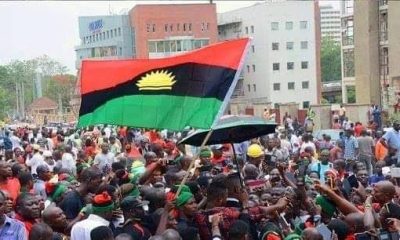
 News23 hours ago
News23 hours ago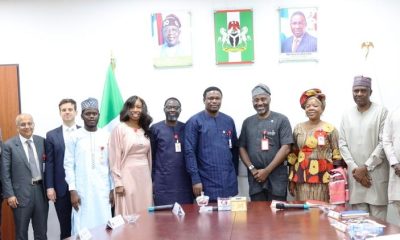
 News4 hours ago
News4 hours ago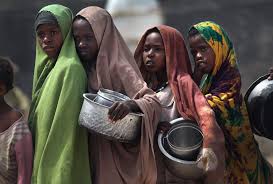
 News22 hours ago
News22 hours ago
 News3 hours ago
News3 hours ago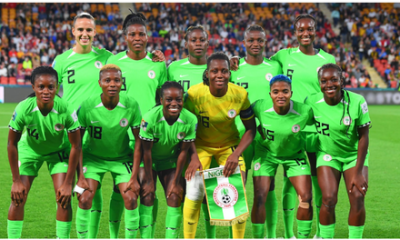
 News3 hours ago
News3 hours ago
 News22 hours ago
News22 hours ago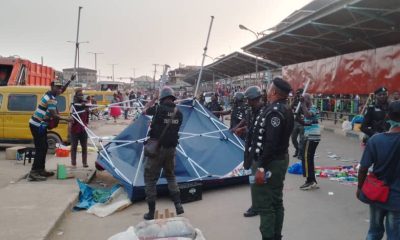
 Metro21 hours ago
Metro21 hours ago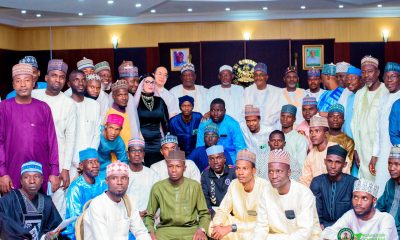
 Education3 hours ago
Education3 hours ago

